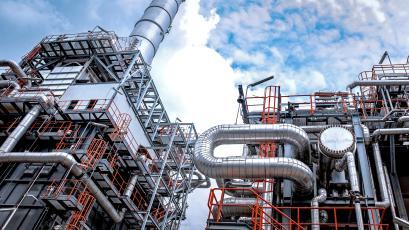More than 90% of American households own a car, so EPA’s proposal to ban the vast majority (about 70%) of new gasoline and diesel vehicles in less than 10 years is going to affect almost every one of us. It will set the terms for what cars and trucks we can even consider purchasing in the years ahead, and it will certainly affect those vehicle price tags; It will have massive repercussions across the U.S. economy and supply chains; It could upend and challenge U.S. energy security and potentially the reliability of our electricity.
Amid all the technical concerns about policy feasibility and EPA authority (which the Agency vastly overstepped), our concerns over EPA’s proposal fall into three categories:
-
Yes… this proposal is a ban. Understandably, EPA doesn’t want to own that its policy is the beginning of a nationwide ban on gasoline and diesel vehicles. But if the only cars that can satisfy EPA’s zero-tailpipe-emission mandate are electric or hydrogen fuel cell vehicles—which EPA has acknowledged—then it’s going to feel very much like a ban to consumers who will no longer have the same ability to purchase liquid-fuel-powered cars and trucks.
-
This proposal is great news for China. The United States is energy secure because of our strength in liquid fuels. We are the world’s refining powerhouse and a net exporter of crude oil and refined products. This proposal would have us trade that advantage for a position of dependence on China, because China is without question the world’s dominant player in critical minerals and EV battery production.
-
This proposal ignores all but one category of vehicle emissions. Serious environmental policy needs to account for greenhouse gas (GHG) emissions across the vehicle lifecycle. Period. Unfortunately, EPA’s proposal focuses just on tailpipe emissions, completely ignoring emissions associated with vehicle and battery manufacturing, EV charging and battery replacement and recycling. Using this flawed logic, a Hummer EV, with its near-3,000-pound battery weighing more than a full Hyundai Elantra, would count as having ZERO emissions and less impact on the environment than a Prius. Ongoing efforts to reduce the lifecycle emissions of traditional fuels and vehicles are completely discounted by this proposal which seeks to arbitrarily disqualify nearly all gasoline, diesel, hybrid and flex fuel vehicle models.
We like to remind readers a lot that AFPM has no issue with EVs and we support greater fleet efficiency and efforts to reduce the emissions intensity of transportation. EVs continue to grow in popularity and will comprise a greater share of the vehicle fleet in the future… for sure. Our issue is with government using an arbitrary emissions measure to ban an incredibly competitive and efficient technology—and liquid fuels—out of existence. There is more than one way to reduce emissions from the transportation sector and American-made liquid fuels are already contributing. We can’t let flawed government policy limit our options and compromise our strengths.
The American Fuel & Petrochemical Manufacturers (AFPM) is the leading trade association representing the makers of the fuels that keep us moving, the petrochemicals that are the essential building blocks for modern life, and the midstream companies that get our feedstocks and products where they need to go. We make the products that make life better, safer and more sustainable — we make progress.


